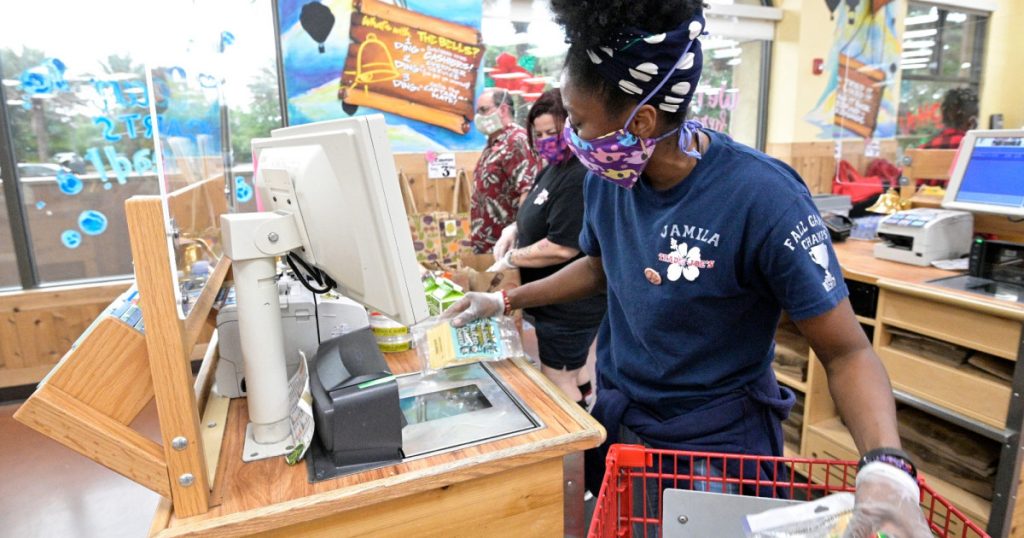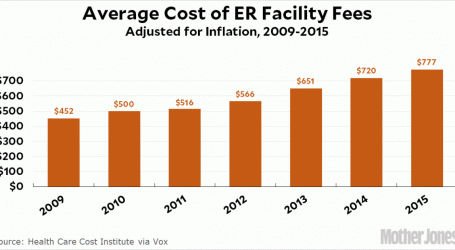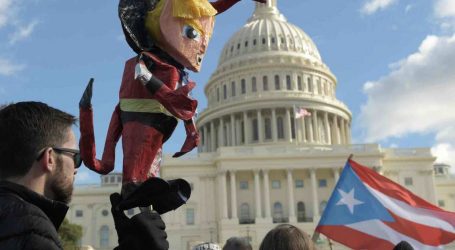How Is Your State Protecting Grocery Workers?
Employees wear masks and gloves while checking out food items behind a partition at a Trader Joe’s grocery store in Orlando, Florida.Phelan M. Ebenhack/AP
For indispensable reporting on the coronavirus crisis and more, subscribe to Mother Jones’ newsletters.Last month, after the coronavirus began to transform the way Americans live and shop, Minnesota and Vermont classified grocery clerks as emergency workers, qualifying them for free child care. Since then, more than a dozen states have provided free, subsidized, or income-dependent child care to grocery workers, bringing the total of number of states offering this benefit to 20.
As they continue to put themselves at risk of infection, many grocery workers say they need even more protections. At least 41 grocery workers have so far died from the coronavirus, according to the Washington Post. The United Food and Commercial Workers union, along with major supermarket chains Kroger and Albertsons, have been calling for federal and state officials to designate grocery workers as first responders, which would give them priority access to masks and gloves. They’re also calling for mandatory guidelines from the Centers for Disease Control and Prevention to require sanitation, social distancing, and personal protective equipment in grocery stores.
David Madland, a senior fellow at the Center for American Progress, told me last week that the first-responder status was a step in the right direction, but it still wouldn’t be enough to keep them out of harm’s way. “Essential workers need more than just masks and gloves,” he said. “They need a broad set of protections to enable them to safely go to work.” Madland supports the Essential Workers Bill of Rights, proposed by Sen. Elizabeth Warren (D-Mass.) and Rep. Ro Khanna (D-Ca.), which would mandate protective equipment, sick leave, child care, health care, and a pay raise for essential employees like grocery workers.
In the absence of meaningful federal protections, workers’ protections are set by the companies they work for and state and local governments. Even as grocery workers are increasingly hailed as heroes for their service during the coronavirus crisis, only a handful of states have so far taken action to provide them protections from the virus.
Some states, including Delaware and Illinois, have issued guidance for grocery stores to limit the number of customers and enforce social distancing in lines, and a growing number are requiring shoppers to wear masks. But so far, only a handful of states, including Connecticut, Rhode Island, New York, New Jersey, and Pennsylvania, are requiring employers to provide grocery workers with personal protective equipment.
Massachusetts has made free, priority coronavirus testing available to grocery workers. California expanded paid sick time to food sector workers and, along with Nevada and Maryland, granted grocery workers the right to wash their hands every 30 minutes.
Is your state taking action to protect grocery workers that I should know about? Drop me a line at bdernbach@motherjones.com.





